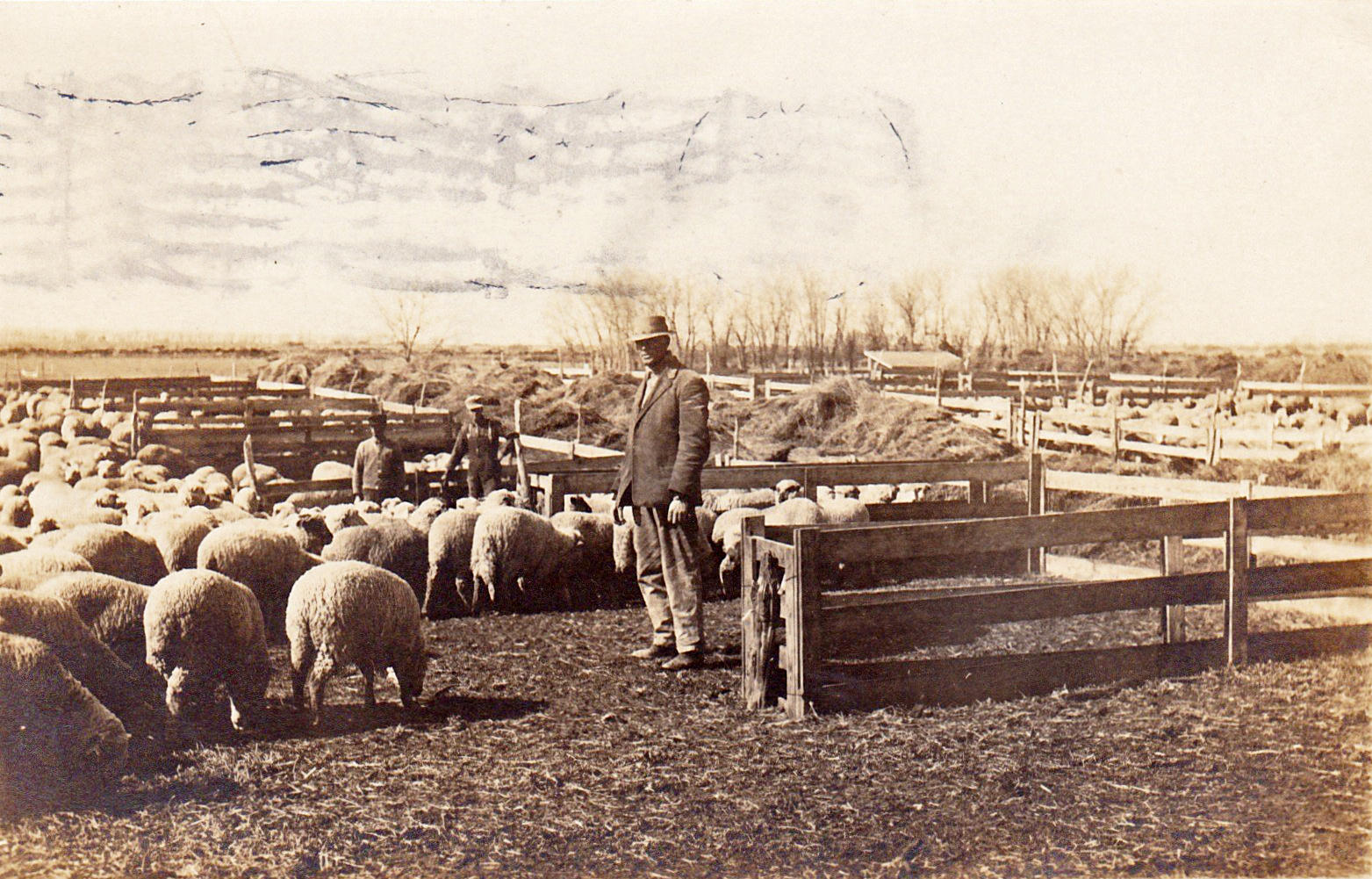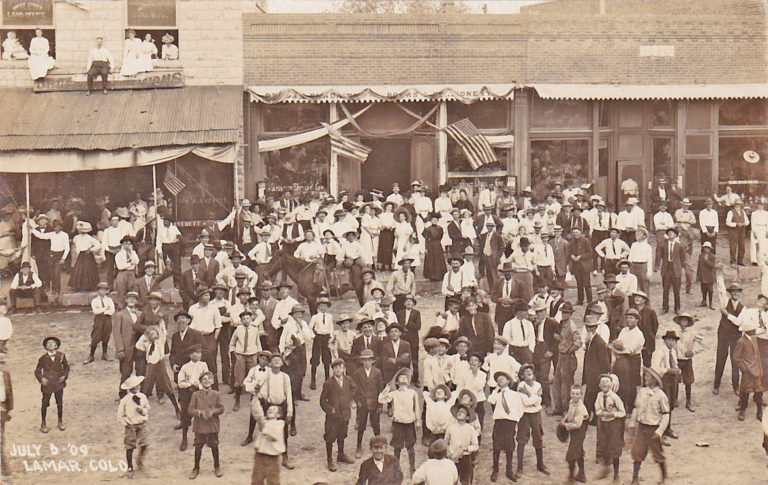The sender of this card postmarked in Lamar identifies the man in the picture as Auburn Nowels of Indiana. Auburn Ray Nowels was born in Rensselaer, Indiana, in 1882, to David Benjamin (aka “D.B.”) and Sarah Ellen (Burk) Nowles. In 1900, the Nowles moved to Lamar, where D.B., who had been a teacher in Indiana, established himself as a successful rancher over the next 20 years. This picture may have been taken on the Nowles ranch, described in one news account as “probably the best ranch of its size (280 acres) in Prowers County.” (In 1920, D.B. and Sarah moved to Missouri, where D.B. served as a Baptist minister and remained active in agricultural and other business pursuits.)
At age 33, Auburn, who now lived in Canon City, married Gunnison native Eloise Dayton Spencer, aged 24, on August 19, 1915. One year earlier, Eloise had earned a B.S. degree at the University of California/Santa Barbara. Auburn himself was a graduate of Chicago University.
The newspaper article announcing the wedding describes Eloise as “one of the most popular ladies in Gunnison,” well known in her job teaching at the high school. Auburn is described as being “prominent in Canon City” where he was associated in business with his father, D. B., who owned, with Irvin R. Stockton, the Nowels-Stockton Mercantile store. It was also revealed that D. B. would be handing the reins over to Auburn to run the store. In an example of mixing journalism with advertising, the Canon City Record newspaper reported that, in addition to taking over his father’s business, Auburn “announces the Annual January Clearance Sale…which he promises will attain its usual stupendous proportions and will offer its accustomed list of remarkable bargains.”
It appears D.B. or Auburn sponsored a baseball team in Canon City called the Nowels. In a night game against the Mazdas on July 14, 1915, the Nowels’ pitcher, Bauer, was “scintillating,” and Auburn acquitted himself well with three hits out of four times at bat, but nine errors by the Nowels spiraled them down to a 7-5 loss to the Mazdas.
In an interesting August 1916 article in the Canon City Record titled “Auburn Nowels Returns from the Burning East,” Nowels describes the torrid heat he experienced on a buying trip to New York and makes observations about the polio outbreak there. He said he “never saw or felt it so hot in all his life.” In a reference to the detachable shirt collars worn by men at that time, he said it “took ten collars a day to look presentable and it was impossible to make clothes look like anything but dish rags.” He reported he was “not at all surprised to read almost every day that (people) were dying almost by the hundreds.” Referring to the polio outbreak, he observed that it “seemed to be confined to the tenement districts and was not disturbing other parts of New York other than that every part of the city was being given precautionary measures to prevent the spread of the disease.”
Auburn and Eloise raised twin daughters, Frances and Eloise. Eloise, who studied Geology at Western State College (now Western Colorado University) in Gunnison and art at Bennington College in Vermont, distinguished herself by joining the Marines in World War II, serving as a meteorologist for operations in the Pacific Theater and attaining the rank of 1st Lieutenant.
By the time Auburn reached the age of 60, he and Eloise were living in Fruita, Colorado, where he ran the Fruita Feed and Seed Company. He died on September 8, 1951, and Eloise died on May 7, 1981. They are both buried at the Gunnison Cemetery.
REFERENCES:
- Canon City Record dated: July 15, 1915; August 19, 1915; August 10, 1916; January 4, 1917 (at www.coloradohistoricnewspapers.org)
- The Daily Sentinel, Grand Junction, CO, February 6, 1939; September 9, 1951 (www.newspapers.com )
- Find A Grave at https://www.findagrave.com/memorial/173005060 and https://www.findagrave.com/memorial/16042969
- Henneson-2012 Family Tree (at www.ancestry.com)
- Pederson Family Tree ( at www.ancestry.com )
- Shannon County Democrat (Winona, MO), March 19, 1936.
- U.S. School Yearbooks, 1900 – 1999 (at www.ancestry.com )
- Wikipedia at https://en.wikipedia.org/wiki/Bennington_College
- Wikipedia at https://en.wikipedia.org/wiki/Western_Colorado_University
- World War II Draft Registration Cards, 1942 (at www.ancestry.com)
- 1900, 1910 and 1920 Censuses (www.ancestry.com)


